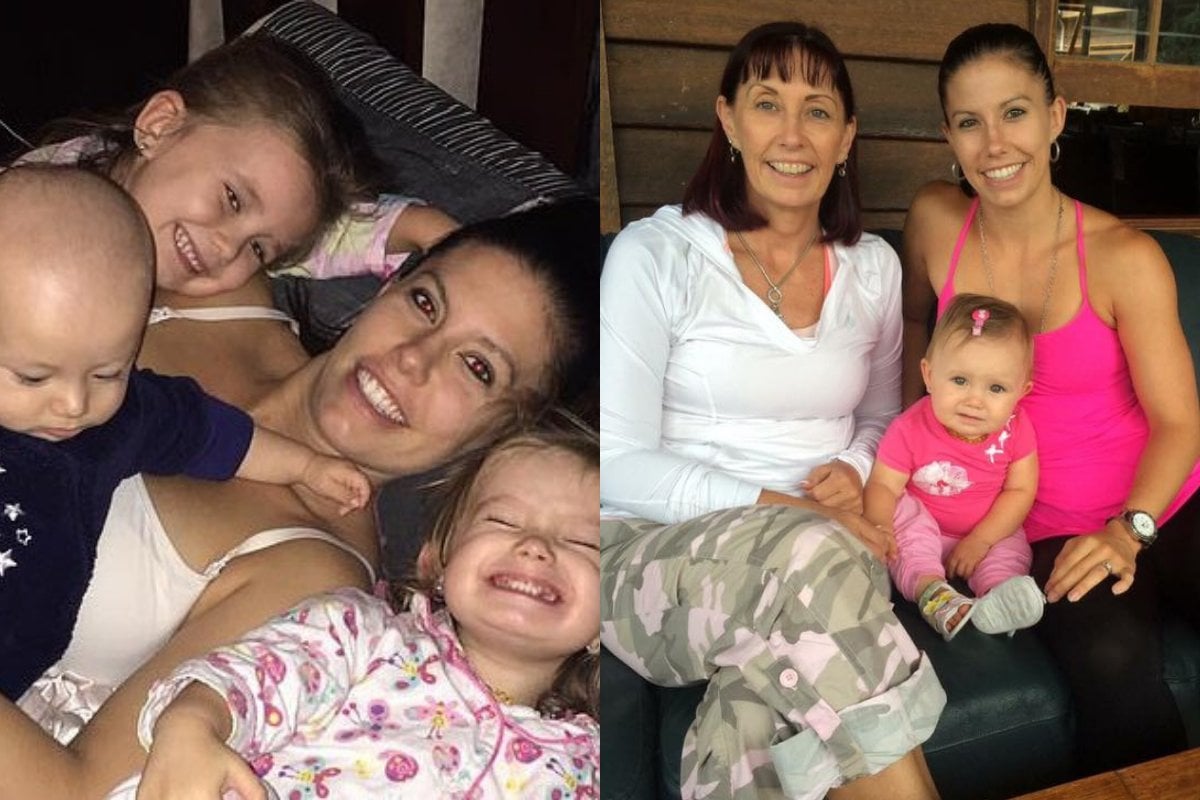
This post deals with domestic violence and could be triggering to some readers.
It's been three years since Hannah Clarke and her three children were murdered. In May 2022, during Domestic and Family Violence Prevention Month, Mamamia asked Hannah's mother, Sue, to write a letter to her daughter. This is what she shared.
Dear Han,
Remember when Dad and I did that media conference six months after you left us, and it just rained all day? It was at the park near home – the one the Brisbane City Council now calls Hannah’s Place.
We know how much you hate fuss and attention, so we joked it was probably you up in heaven arranging for it to rain so everyone would just go home.
But they didn’t go home. Dad and I stood up in front of the cameras, in the pouring rain, and Dad sent a message loud and clear to the politicians.
He told them that we had heard enough talking and enough promises, and it was time to make coercive control a criminal offence.
Watch: Coercive control is a deliberate pattern of abuse. Post continues after video.
Of course, six months before that, when you and the kids were taken, we’d never even heard of “coercive control”. We had seen it firsthand, but we never knew it had a name.
